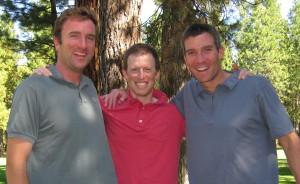 I have a confession: I don’t know the names of my neighbors across the street. And they’ve been living there for over two years now. In my defense, I know the people who reside to the left and right of my house. But crossing that two-lane street seems an impossible divide for me right now. I’m too busy:
I have a confession: I don’t know the names of my neighbors across the street. And they’ve been living there for over two years now. In my defense, I know the people who reside to the left and right of my house. But crossing that two-lane street seems an impossible divide for me right now. I’m too busy:
- running my medical practice
- raising my kids
- exercising
- eating right
- trying to get a good night’s sleep now and then.
A new study from a team of psychologists suggests it might be worth my time, from a health standpoint, to spend more time with the neighbors. This meta-analysis evaluated nearly 150 studies comprising over 300,000 participants, extracting the risk of death relative to the strength of each group’s social relationships. The results were surprisingly consistent and powerful: people with stronger social connections increased their likelihood of survival by 50%. Results were controlled for age, sex, and health status.
Like almost all behavioral studies, these results represent only an association between social relationships and risk of death. (This blog has discussed before the pitfalls of confusing association and causation.) Nevertheless, it’s an extremely powerful association, on par with smoking and risk of death. (That relationship has long since been proven causative.)
In other words, the health benefits of a strong social network are equivalent in benefit to stopping smoking — and exceed the value of medications to control high blood pressure or cholesterol.
Yet major health organizations largely ignore the importance of this unrecognized health risk factor. And it appears to be a worsening problem: over the past two decades, the core discussion networks of Americans have withered by a third, with the average person in the General Social Survey reporting three confidants in 1985 but only two confidants in 2005.
Theories abound as to why social connections are in decline. The Harvard political scientist Robert Putnam, in his book Bowling Alone, proposes a number of explanations, including
- increased TV viewing habits, and
- loss of civic-mindedness born out of the First and Second World Wars.
Other social scientists have suggested
- loss of time due to increased job demands (two-career households and longer hours at work), and
- impersonal urban design (car-based communities without sidewalks, front porches, or parks).
Of course, a big question is whether the wealth of electronic social networks like Facebook or Twitter will provide any counterweight to these forces. The most recent survey data available is for 2006, when Facebook and others similar ventures were still fairly embryonic.
Of greater interest is why, or how, do social connections confer such protective effects on individuals? One explanation is that friends help cushion the cruel blows of everyday life — whether they be serious (death of a spouse or child), or slight (insults of coworkers or classmates).
I’ll be knocking on my neighbors’ door tomorrow.
